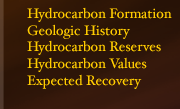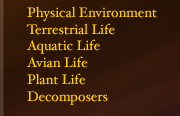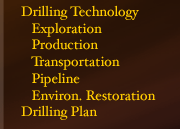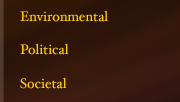
Political Implications - International Ramifications
Oil is bought and sold across country lines like any other commodity. However, since 1973, the practical workings of the oil market have been antithetical to the nature of pure competition. The Organization of Petroleum Exporting Countries (OPEC) has used its power as a cartel to control the market price of oil.
Prior to OPEC's actions in 1973, the price of oil was stabilized at approximately $3 a barrel. OPEC took advantage of the nearly perfectly inelastic demand for oil, and cut its supply; thus, the price for oil rocketed from $3, to $5, to $12, up to today's range of $22 to $28. OPEC will cut or raise production so that the price doesn't deviate from this range. While this sounds like a perfect system for the countries in OPEC, it assumes that OPEC has unlimited production capability and that they can cut off all world oil production.
OPEC itself satisfies neither of those two assumptions. However, they are close. The eleven member nations of OPEC -- Algeria, Indonesia, Iran, Iraq, Kuwait, Libya, Nigeria, Qatar, Saudi Arabia, the United Arab Emirates, and Venezuela -- control approximately 35% of world oil production. In many cases, this number would be enough to minimize their impact on the world oil market. However, OPEC controls over 80% of surplus capacity in the world; no other countries can raise production enough to balance out OPEC's influence. Also, OPEC's control of 78% of proven oil reserves gives it a long term capability to control the oil market.
The influence of American drilling in ANWR therefore must be understood within the context of the current oil market. While production in the 1002 region could yield approximately 10 billion barrels of oil, its impact on the world oil market will be minimal. Variations in proven oil reserves can make a difference to one country's power in the market under a more traditional oligopoly, but since the OPEC cartel can simply cut production by an equivalent amount, the price of oil would remain in the current range.
There is a point, however, past which OPEC cannot cut its production, because member nations will simply ignore quotas. However, as world oil demand increases, and with OPEC still controlling a significant majority of the world's excess capacity, the production minimum will disappear within the next decade. And, coincidentally, it will take that decade before significant quantities of oil can be extracted from ANWR. At that point, the world demand will be high enough that OPEC can cut its production by whatever comes out of ANWR and still maintain reasonable quotas for its member states.
For a case study, consider the influence of war in Iraq on the world oil community. Iraq's prewar production level of 1.5 million barrels per day is, within a factor of two, the rate of production in ANWR. The impact of war in Iraq due to the cessation of production of 1.5 million barrels per day was next to nothing. Yes, there was a temporary spike in the price of oil, most of which can be attributed to fears of the war spreading to other oil producing countries; however, the spike was temporary. By compensating in their own export quotas, OPEC was able to maintain the price bracket on oil. Yes, drilling in ANWR is substantially different from war in Iraq; however, the analogy to the oil market impact does hold.
The impact of American oil drilling in the wildlife refuge will be more than the simple number of barrels of oil. The US will send a message that it is willing to do anything to preserve its oil-driven economy. As drilling in ANWR will lead to a slight decrease in OPEC and the Middle-East oil production, the situation for purchasing oil on the European continent could be negatively impacted. This impact coupled with the strong environmentalism present in European countries will lead to tense relationships between the United States and Europe.
The US already has a poor reputation for environmental policy with European countries. This reputation stems from the policies of the United States on international environmental treaties such as the Kyoto Protocol. Many developed nations are disappointed by the fact the US refuses to sign the Protocol and work toward lower greenhouse gas emissions. Opening ANWR for drilling would show environmentalists that the US has less interest in pursuing sustainable resources, and more interest in a cheap source of oil.
In short, drilling in ANWR will have a negligible impact on the economics of the world oil market. In turn, that means that its political impact will be negligible, because the United States will be in no stronger a negotiating position with OPEC. The member nations of OPEC won't have any harder of a job to control the world's oil production. Europe will still have negative feelings towards the United States for its environmental policies and for its continued reliance on oil as its main energy source.
�





